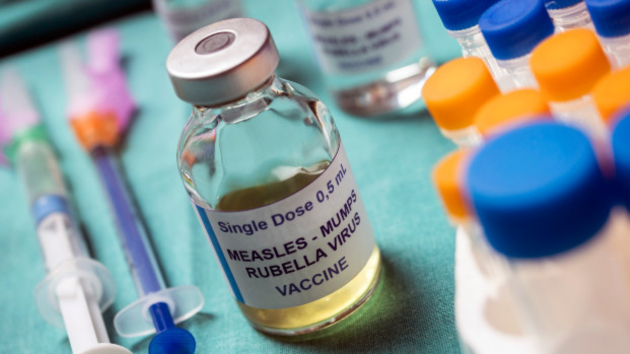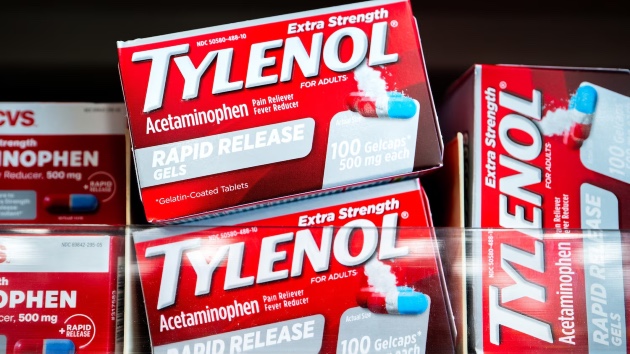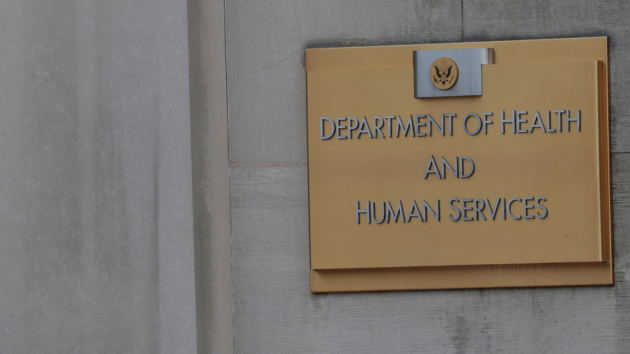FDA approves Xolair, first medicine for kids, adults with food allergies
Written by ABC AUDIO ALL RIGHTS RESERVED on February 16, 2024

(NEW YORK) — The U.S. Food and Drug Administration has approved Xolair as the first and only medicine for people with one or more food allergies after the clinical trial data for the injectable asthma medication showed it helped people curb food-related allergic reactions.
“The FDA approval is based on positive data from the Phase III OUtMATCH study,” Genentech announced on Friday.
The study showed “a significantly higher proportion of food allergy patients as young as 1 year treated with Xolair could tolerate small amounts of peanut, milk, egg and cashew without an allergic reaction, compared to placebo.”
“The FDA approval of Xolair for food allergies is meaningful to me on a personal level, not only as a physician, but as a patient and a parent of a child with food allergies, too,” Dr. Larry Tsai, VP and global head of respiratory, allergy and infectious disease product development at Genentech told ABC News. “For the first time, people with one or more food allergies have a treatment option with Xolair that can help reduce allergic reactions that may occur with an accidental exposure.”
Dr. Levi Garraway, Genentech’s chief medical officer and head of Global Product Development, added in a press release that “Today’s approval builds on 20 years of patient experience and an established efficacy and safety profile since Xolair was first approved in allergic asthma … We look forward to bringing this treatment to the food allergy community who have long awaited an advancement.”
The studies first showed promising results in late December, experts at the time said they were hopeful that the injection would eventually win FDA approval as an allergy treatment for children.
Pharmaceutical developers Genentech and Novartis first announced in December 2023 that the FDA was prioritizing the review of its application for use of Omalizumab, an allergy-induced asthma medicine, in cases of accidental exposure to foods like peanuts, eggs or milk.
The small study, which needs more research before a potential FDA approval, combined with prior research points to how alternate use of the medication marketed as Xolair could potentially help to prevent allergic reactions in people who have multiple food allergies, especially anaphylaxis.
The federally funded trial backed by the National Institute of Allergy and Infectious Diseases is set to finish in 2026.
“Despite the significant and growing health burden from food allergies, treatment advances have been limited,” Garraway, said in the December press release. “We are proud to partner with the National Institutes of Health and leading research institutions on this groundbreaking study. The FDA’s Priority Review designation acknowledges the unmet need for these patients, and we hope to make Xolair available to as many people as possible living with food allergies in the U.S.”
Data from the trial, which looked at 165 kids and adolescents — whose severity of reactions like hives or anaphylaxis was not included — showed those who received Xolair were able to eat more foods they have sensitivities to without triggering an allergic reaction, compared to participants who received a placebo.
While the preliminary data shows potential for this drug in this off-label application, there is not yet enough evidence to determine how great the impact could be for people with food allergies.
A Genentech spokeswoman told ABC News in December that the FDA was expected to decide on approval in the first quarter of 2024. If approved, Xolair would be the first medicine to reduce allergic reactions to multiple foods following an accidental exposure.
Tsai, previously told “GMA” that because food allergies hit close to him, this study feels like a step in the right direction for treatment options.
“While I am a physician, I am also a parent of a child with severe food allergies,” he said in an emailed statement. “I am all too familiar with the constant worry and fear that my child will have an accidental exposure at school or a friend’s house. For the roughly 17 million children who live with food allergies, the current standard of care treatment is for children to avoid the foods they are allergic to, and to learn to recognize and treat symptoms upon exposure to an allergen.”
Even with careful monitoring, he added that “accidental exposures are difficult to prevent and there is a significant need for new treatment options for children with food allergies.”
“The positive results from the OUtMATCH study bring us one step closer to providing a new treatment option for children and adults impacted by food allergies,” Tsai, who also has a food allergy himself, continued.
Updates for the trial on the Centers for Disease Control and Prevention website do not list how much more of the food participants were able to consume without having an allergic reaction.
The medication, marketed as Xolair, has been on the market since 2003 and helps treat chronic hives as well as chronic rhinosinusitis with nasal polyps — an inflammatory sinus disease.
People who take Xolair for allergic asthma, typically take the medicine for approximately 10 months and while price varies based on indication and dose, the cost is approximately $3,663 a month. That price also varies depending on the frequency as well as a person’s weight and their serum IgE levels.
An earlier version of this story was originally published on Dec. 27, 2023.
Copyright © 2024, ABC Audio. All rights reserved.





